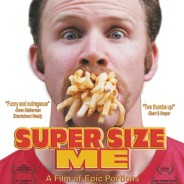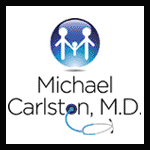
The results of a four-year study of over 150,000 American households were just released and found that 2/3 of the calories purchased were “highly processed foods”. Not processed, HIGHLY processed. The consequences for our health and well-being are immense.
Some of you might be shaking your head, tsk-tsking at those other people who live on McDonalds “food”. They are right to believe that fast food from such establishments is not so healthy. Their mistake is that even those of us who eat organic foods eat too much processed food. Highly processed organic is only marginally better than highly processed nonorganic.
Did you ever see the movie Super Size Me? If you haven’t, I urge you to do so. In the film Morgan Spurlock experiments on himself by eating only McDonalds food for a month. He also decided that if the clerk asked if he wanted to have the meal “super sized”, which was McDonalds sale campaign at the time, he had to say yes. He also had to finish all the food. Before he began his month-long McDonalds feast, he saw three medical doctors, a family physician, a cardiologist and a gastroenterologist. The doctors each conducted a physical exam and ran blood tests and an ekg.on Mr. Spurlock. They all told him that he was in great health, and the McDonald’s diet shouldn’t cause him any significant harm. They were quite wrong.
Right away his energy level dropped. He began to suffer headaches and depression. He gained 10 lb. in the first week. His heart became irregular and his blood tests showed liver damage as a consequence of the diet. The same physicians who had reassured him before the experiment began, now urged him to abort the test after just two weeks. He ignored their advice and finished out the 30 days. It took him over a year to lose the 25 lb. he gained.
A few years after Super Size Me came out, an unusually perceptive patient who ate a lot of food from a local organic fast food producer jokingly suggested that we run the same sort of test on him. Of course, that would have been foolish, maybe even unethical, given what he and I both knew.
Organic is good, but not good enough. When I started eating organic food back in 1970 (seriously, it has been that long), “organic” meant something quite different from what the word means today. In truth, the word doesn’t have a different meaning, but the food it refers to is quite different. Back then, organic food came from small farms that were nearby. The food was consequently fresher, and if there were any problems with the farming, it would be easy to discover. Organic foods then were also virtually unprocessed whole foods. Today we have organic fast foods that are highly processed. They are convenient, but they are not particularly healthy.
What should you do?
The first step is to consider the food you buy. Local, organic (or even biodynamic) food is the best. Local food that is not organic is often better than organic shipped in from far away. Tomatoes should not accumulate frequent flyer miles. Sometimes that farm factory organic food is grown alongside the fields farmed by the nonorganic branch of the same company. In many instances problems created in the neighboring fields run off into the organic tract.
Next, it’s all about the preparation. Today, try to make something to eat from scratch. It will be healthier, more tasty and the process of creation is good for you.
Finally, the process of eating is important. Take time to enjoy your food. Don’t eat while you drive, walk, watch TV or hang out online. Food is most nourishing when it is savored.
